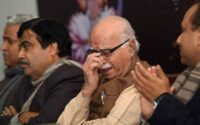ENCOUNTER: DEPRIVATION OF RIGHT TO LIFE UNDER ARTICLE 21
This article has been written by Nandini Srivastava of Manipal University Jaipur. This article is curated by Himanshu Raj of Chanakya National Law University, Patna.
No one is unaware of the fact that a famous gangster, Vikas Dubey was encountered by the police officers a few days back. Upon hearing this news, people had mixed reactions. Some were relieved that finally, a man accused of 68 cases of murder and attempted murder is dead while some were exasperated on the thought that justice has not been served. Encounter or extrajudicial killing is not a new concept but it is a tool devised and used by police officials for a long time. This tool was practiced by the Maharashtra police to deal with the Mumbai underworld, it was used by Punjab police against those people who demanded Khalistan and has been widely used in the state of Uttar Pradesh since 2017. It is also evident that as the crime rates against women have increased in India, the people are constantly demanding to kill the accused at the earliest. The encounter of four men accused in the Hyderabad rape and murder case was widely celebrated in India but however appropriate it seems prima facie, it is not legally right.
The Constitution of India, 1949 through Article 21 guarantees “No person shall be deprived of life or personal liberty except according to the procedure established by law.” and procedure adopted should be just, right and fair and not oppressive, fanciful and arbitrary. Procedure can only be just, right and fair when it is based on natural justice. Every person whether criminal or not has the right to natural justice but police encounters deprive them of it.
Police can only harm or kill anyone in self – defence or to maintain peace and order but yet India has had numerous cases of encounters. India has no laws for regulating encounters but Supreme Court in the case of People’s Union of Civil Liberties v. State of Maharashtra has laid down certain guidelines for the investigation of encounter cases and they are as follows:
- Whenever police receive any intelligence report or tip – off regarding any activity or movement regarding to the commission of any grave criminal offence then it is required to report it either in the case diary or in any electronic form. When information is received through any higher authority then the same should be mentioned in the report without fail. In both the cases, details of the suspect and location should not be revealed.
- If firearms are used by the police which results in an encounter then an FIR should be registered and submitted to the Judicial Magistrate. If any police weapon is found related to the encounter then the same should be sent for forensic and ballistic test.
- Independent and impartial investigation of the encounter should be carried out either by the Crime Investigation Department (CID) or other police team. The team doing investigation should be headed by an officer who holds superior rank than those who are party to the encounter.
- The team while carrying out the investigation has to identify the victims and take their pictures for record. They need to find and preserve various evidence which include but not limited to blood – stained earth, hair, threads, weapons etc. Investigating team has to ascertain the reason, manner and location of the whole crime scene and along with that if possible should take its photograph or video of the location. It is imperative that they also record the time of death. Team has to send for chemical analysis the fingerprint of the deceased and of any person found on the location. Post mortem report should be conducted in the District hospital by at least two doctors out of whom one should be the head of the District hospital. The post mortem should be video graphed for record. At last, the team has to establish whether it is a natural death, accident, suicidal or homicide. If it is proved that death has been the result of a crime under IPC, 1860 then disciplinary action should be taken against the police officer and he should be immediately suspended.
- Imitation of the scene should be sent to the family of the officer and if they require service of lawyer or counselor then they should be offered the same. No promotion or award should be given to the officer immediately after the incident. Any such can only be given if it is proved that such gallantry is beyond doubt.
- It is not necessary to involve the National Human Rights Commission (NHRC) in every single case. They need to get involved in only those cases where it seems that an impartial or independent investigation has not taken place though it is necessary to send information about the incident to NHRC as soon as possible. Six monthly statements of all the cases of police firing should be sent to the NHRC in every 6 months by the DGP’s.
- Any person injured should receive immediate medical assistance and his statement should be recorded either by the Medical or Magistrate officer. In case of death, the family should be informed and compensation should be given to them under Section 357 of CrPC.
- If the family of the deceased is under a belief that an impartial or independent investigation has not taken place then they can file a complaint to the Session judge.
Encounter deprives a person from his/her fundamental rights given under Article 21 but at the same time it divests the nation from truth as well. Police, though the protectors of the state at times might abuse their power in order to please and hide toxic actions of few powerful people and what better way to prevent the public from knowing the criminal nexus than encounter. The court in the case of Prakash Kadam v. Ramprasad Vishwanath Gupta also held that encounters by police officials are nothing more than cold blooded murder and in its judgment stated “Trigger happy policemen who think they can kill people in the name of ‘encounter’ and can get away with it should know that gallows await them”.


